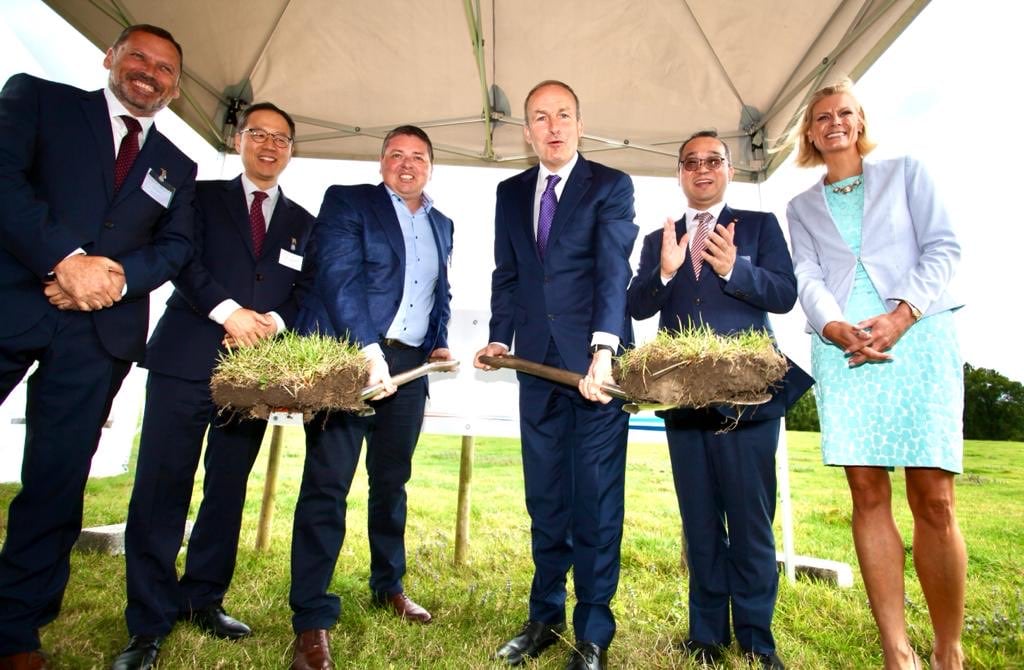
Construction has started on a project in Ireland pairing a battery energy storage system (BESS) with a synchronous condenser, developed by Lumcloon Energy and Hanwha Energy.
Prime minister (Taoiseach) Michael Martin marked the start of construction yesterday (6 September) at the project, called Shannonbridge B, in central Ireland.
Enjoy 12 months of exclusive analysis
- Regular insight and analysis of the industry’s biggest developments
- In-depth interviews with the industry’s leading figures
- Annual digital subscription to the PV Tech Power journal
- Discounts on Solar Media’s portfolio of events, in-person and virtual
The grid stability plant will provide 170MWh of energy storage for the country’s national grid and will take two-years to build at a cost of €130 million (US$129 million).
It is being developed by domestic outfit Lumcloon Energy and Korean group Hanwha Energy and will pair what was described as a long duration battery system, with a synchronous condenser.
Synchronous condensers provide low carbon inertia which, combined with the batteries’ rapid frequency response, reserve and ramping services, will allow the plant to respond to sudden changes in electricity supply and demand.
A press release announcing the start of construction did not reveal the nameplate power of the BESS but two separate documents from grid operator Eirgrid detailing grid connection agreements, dated November 2019 and March 2020, may provide the answer.
Both documents detail a BESS project titled ‘Shannonbridge b’ with a power rating of 97.2MW which, if indeed the project in question, would give the BESS a duration of 1.75 hours. Although there is no broadly agreed definition of what constitutes long-duration energy storage (LDES), most other descriptions tend to consider LDES as more than four hours.
Nigel Reams, managing director of Lumcloon Energy, said: “We are focused on accelerating the decarbonisation of the Irish energy sector. We develop projects which increase the stability and reliability of the power grid and provide essential back up to support renewables.”
“Shannonbridge B is another major step in the right direction for Ireland’s power grid and will facilitate the increasing amount of renewables on the system.”
Lumcloon and Hanwha have already worked together to deliver two 100MW, one-hour systems in Ireland as previously reported by Energy-Storage.news, the first of which was energised in December 2020.
Ireland has been one of the early movers in the European energy storage market along with the UK, with grid frequency response markets providing secure revenue services for projects. According to consultancy Delta-EE, it will have 1,400MW of BESS installed by the end of 2022 with 600MW coming online over the course of the year.
Mitsubishi Power recently revealed it was entering the market with 371MWh of two-hour projects for developer ION Renewables.






